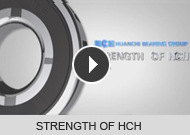Manufacturing & Quality>Process failure modes and effects analysis (PFMEA)

Process failure modes and effects analysis (PFMEA)

Severity Ranking Table :
| Effect | (Customer Effect) | (Manufacturing/Assembly Effect) | Ranking |
| Hazardous without warning | Very high severity ranking when a potential failure mode affects safe vehicle operation and/or involves noncompliance with government regulation without warning | Or may endanger operator (machine or assembly) without warning. | 10 |
| Hazardous with warning | Very high severity ranking when a potential failure mode affects safe vehicle operation and/or involves noncompliance with government regulation with warning | Or may endanger operator (machine or assembly) with warning. | 9 |
| Very High | Vehicle/item inoperable (loss of primary function). | Or 100% of product may have to be scrapped, or vehicle/item repaired in repair department with a repair time greater than one hour. | 8 |
| High | Vehicle/item operable but at a reduced level of performance. Customer very dissatisfied. | Or product may have to be sorted and a portion (less than 100%) scrapped, or vehicle/item repaired in repair department with a repair time between a half hour and an hour. | 7 |
| Moderate | Vehicle/item operable but Comfort/Convenience item(s) inoperable. Customer dissatisfied. | Or a portion (less than 100%) of the product may have to be scrapped with no sorting, or vehicle/item repaired in repair department with a repair time less than a half-hour. | 6 |
| Low | Vehicle/item operable but Comfort/Convenience item(s) operable at a reduced level of performance | Or 100% of the product may have to be reworked, or vehicle/item repaired offline but does not go to repair department. | 5 |
| Very low | Fit and finish/Squeak and Rattle item does not conform. Defect noticed by most customers (greater than 75%). | Or the product may have to be sorted, with no scrap, and a por tion (less than 100%) reworked. | 4 |
| Minor | Fit and finish/Squeak and Rattle item does not conform. Defect noticed by 50% of customers. | Or a portion (less than 100%) of the product may have to be reworked, with no scrap, online but out of station. | 3 |
| Very Minor | Fit and finish/Squeak and Rattle item does not conform. noticed by discriminating customers(less than 25%) | Or a portion (less than100%) of the product may have to be reworked, with no scrap, online but in station. | 2 |
| None | No discernible effect | Or slight inconvenience to operation or operator, or no effect. | 1 |
The final customer should always be considered first. If both occur, use the higher of the two severities.
Occurrence Ranking Table :
| Probability of Failure | Likely Failure Rates | Ppk | Ranking |
| Very High: Persistent Failures | >/= 100 per thousand pieces | <0.55 | 10 |
| 50 per thousand pieces | >/=0.55 | 9 | |
| High: Frequent Failures | 20 per thousand pieces | >/=0.78 | 8 |
| 10 per thousand pieces | >/=0.86 | 7 | |
| Moderate: Occasional Failures | 5 per thousand pieces | >/=0.94 | 6 |
| 2 per thousand pieces | >/=1.00 | 5 | |
| 1 per thousand pieces | >/=1.10 | 4 | |
| Low: Relatively Few Failures | 0.5 per thousand pieces | >/=1.20 | 3 |
| 0.1 per thousand pieces | >/=1.30 | 2 | |
| Remote: Failure is unlikely | >/=1.67 | 1 |
Detection Ranking Table
| Detection | Criteria | Inspection Type | Suggested Range of Detection Methods | Ranking | ||
| A | B | C | ||||
| Almost Impossible | Absolute certainty of nondetection | X | Cannot detect or is not checked | 10 | ||
| Very Remote | Controls will probably not detect. | X | Control is achieved with indirect or random checks only | 9 | ||
| Remote | Control has poor chance of detection. | X | Control is achieved with visual inspection only | 8 | ||
| Very Low | Controls ha v e poor chance of detection | X | Control is achieved with double visual inspection only | 7 | ||
| Low | Controls may detect | X | Control is achieved with charting methods, such as SPC (Statistical Process Control) | 6 | ||
| Moderate | Controls may detect | X | Control is based on variable gauging after parts have left the station, or Go/No Go gauging performed on 100% of the parts after parts have left the station | 5 | ||
| Moderately High | Controls have a good chance to detect. | X | X | Error detection in subsequent operations, OR gauging performed on set up and first piece check (for set-up causes only). | 4 | |
| High | Controls have a good chance to detect. | X | X | Error detection in station, OR error detection in subsequent operations by multiple layers of acceptance: supply, select, install, verify. Cannot accept discrepant part. | 3 | |
| Very High | Controls almost certain to detect | X | X | Error detection in station (automatic gauging with automatic stop feature). Cannot pass discrepant part. | 2 | |
| Very High | Controls certain to detect | X | Discrepant parts cannot be made because item has been error-proofed by process/product design. | 1 | ||




